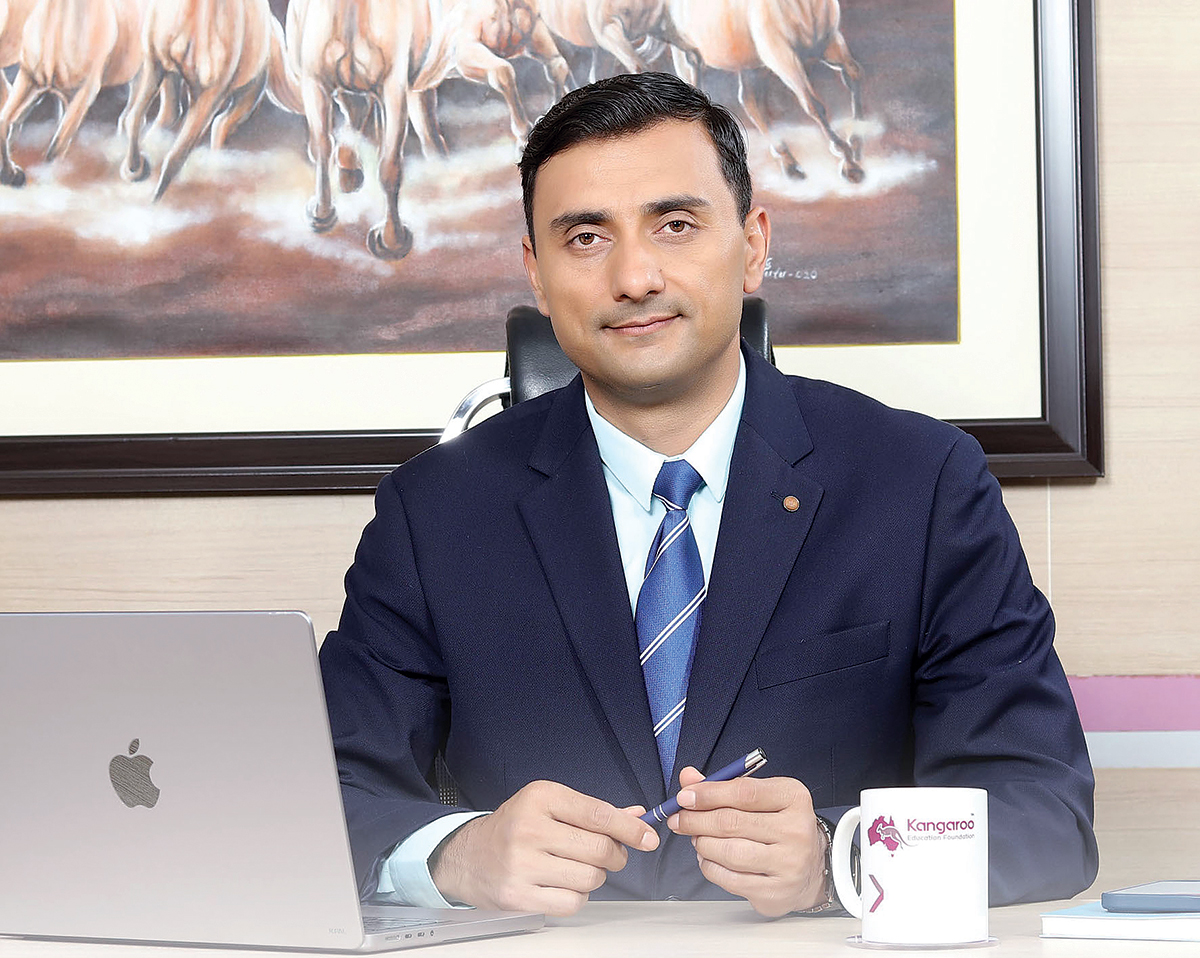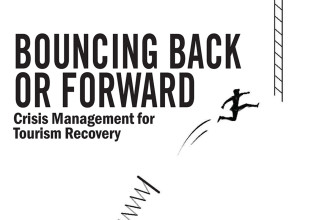
The education consultancy sector in Nepal has witnessed a significant surge in recent years, fuelled by the increasing aspiration of Nepali students to pursue higher education abroad. As the landscape of international education evolves, so do the trends and strategies employed by the consultancies. Students seeking guidance from education consultancies are increasingly targeting countries like the United States, United Kingdom, Australia, Canada and several European nations. While undergraduate programmes remain popular, postgraduate courses, particularly in fields like engineering, business and healthcare, are gaining traction.
The decision to engage an education consultancy presents a complex choice. On one hand, consultancies offer expert guidance, streamlined application processes and visa support. However, they also come with associated costs and a potential loss of autonomy. Students must carefully evaluate the credibility and track record of a consultancy to ensure their best interests are prioritised.
To understand how the education consultancy business is evolving in the country and what lies ahead, in this edition of Business 360, we spoke to some of the leading education consultancy executives: Abhishek Shrestha, Country Director, IDP Nepal; Mahesh Babu Timalsina, Founder and CEO, Kangaroo Education Foundation; Bhojraj Pandey, Executive Director, Education Park; Narayan Bajaj, Head of Operation, Global Reach, Nepal; and Sonee Shrestha, CEO, Westford Education.

What are the current trends for students applying from education consultancies? Which countries are they targeting, which levels and what subjects?
Abhishek Shrestha: The preferred destinations of Nepali students currently are the USA, the UK and Australia with demand for New Zealand and Ireland rising in recent times. We are seeing a slowdown in the demand for Canada because of the increased visa processing time and unfavourable visa outcomes but I am confident demand will bounce back once the situation improves. We see a healthy mix of students aspiring to study in their Master’s and Bachelor’s level, with Master’s level seeing a slightly higher share. Historically, subjects like business and management, accounting, engineering, IT and nursing have been very popular choices among Nepali students. Off late, we have seen demand rising for courses related to agriculture, sustainable tourism, health management and leadership, biotechnology and others.
Mahesh Babu Timilsina: Over 90% of students going abroad from Nepal apply through education consultancies due to the expertise and support these agencies provide. Education consultancies build relationships with international institutions, facilitating student admissions and visa processes more efficiently than if they were to apply independently. Education consultancies are trusted by institutions as they handle multiple students and often have certified, well-trained counsellors who understand the needs and expectations of both students and institutions.
Data from Nepal’s Ministry of Education, Science and Technology shows that in 2023, Australia was the most popular destination, with 26,443 No Objection Certificates (NOCs) issued, followed by Canada (24,684), Japan (23,568), the UK (11,846), and the USA (6,999). Notably, 2024 data indicates South Korea is also emerging, with 5,216 NOCs issued as of mid-July. About 70% of students apply for undergraduate programmes, while 30% aim for postgraduate studies. The most popular subjects include business, IT, accounting, hospitality, social work, nursing and healthcare.
Bhojraj Pandey: Nepali students mostly prefer to study in Australia, Canada, USA, UK, with Australia being the top choice. This is because of good job opportunities and sustainable visa process, though recent requirements for documents have become stricter. Most students go for Bachelor’s degrees, and some pursue Master’s degrees. Popular fields include business, IT, health sciences and engineering. Programmes like research degrees in various fields are also appealing, as they offer hands-on experiences that are hard to find in Nepal. Australia is also known for its vocational and short-term professional courses, which are affordable and skill-focused, attracting many Nepali students. Japan and Korea are also popular study destinations among Nepali students.
Narayan Bajaj: There is no change in the trend for applying through consultancies though the number of consultancies has increased significantly in recent years. Generally speaking, students from Nepal apply for undergraduate and graduate courses. There are a few applications for Master’s by research and PhD courses also. Mainly students apply for business, IT, engineering, hotel management, health sciences, law, data science, etc. Currently, students are applying to USA, Canada, UK, Ireland, Australia, New Zealand, UAE, Europe, Japan and South Korea to name a few and also India and Bangladesh.
Sonee Shrestha: The most popular study destinations remain the USA, the UK, Canada, Australia, and increasingly Europe due to its strong education system, low or no tuition fees, and growing number of international programmes. Other emerging destinations like New Zealand are also seeing growth. Most of the students go to obtain undergraduate and postgraduate degrees. IT, business, healthcare, AI and engineering are the most popular courses.
-1733045042.jpg)
A lot of companies, in my opinion, enter this industry purely lured by the commercials of the business in the form of commissions from the university or college that they are recruiting the students to. There are some unscrupulous players unfortunately that do not work in the best interest of the students. Many tend to provide students the ‘easy way out’ in terms of proving their financial capability, which is detrimental to the student and our industry in the long run.
Abhishek Shrestha
Country Director, IDP Nepal
What are the current trends for students applying from education consultancies? Which countries are they targeting, which levels and what subjects?
Abhishek Shrestha: The preferred destinations of Nepali students currently are the USA, the UK and Australia with demand for New Zealand and Ireland rising in recent times. We are seeing a slowdown in the demand for Canada because of the increased visa processing time and unfavourable visa outcomes but I am confident demand will bounce back once the situation improves. We see a healthy mix of students aspiring to study in their Master’s and Bachelor’s level, with Master’s level seeing a slightly higher share. Historically, subjects like business and management, accounting, engineering, IT and nursing have been very popular choices among Nepali students. Off late, we have seen demand rising for courses related to agriculture, sustainable tourism, health management and leadership, biotechnology and others.
Mahesh Babu Timilsina: Over 90% of students going abroad from Nepal apply through education consultancies due to the expertise and support these agencies provide. Education consultancies build relationships with international institutions, facilitating student admissions and visa processes more efficiently than if they were to apply independently. Education consultancies are trusted by institutions as they handle multiple students and often have certified, well-trained counsellors who understand the needs and expectations of both students and institutions.
Data from Nepal’s Ministry of Education, Science and Technology shows that in 2023, Australia was the most popular destination, with 26,443 No Objection Certificates (NOCs) issued, followed by Canada (24,684), Japan (23,568), the UK (11,846), and the USA (6,999). Notably, 2024 data indicates South Korea is also emerging, with 5,216 NOCs issued as of mid-July. About 70% of students apply for undergraduate programmes, while 30% aim for postgraduate studies. The most popular subjects include business, IT, accounting, hospitality, social work, nursing and healthcare.
Bhojraj Pandey: Nepali students mostly prefer to study in Australia, Canada, USA, UK, with Australia being the top choice. This is because of good job opportunities and sustainable visa process, though recent requirements for documents have become stricter. Most students go for Bachelor’s degrees, and some pursue Master’s degrees. Popular fields include business, IT, health sciences and engineering. Programmes like research degrees in various fields are also appealing, as they offer hands-on experiences that are hard to find in Nepal. Australia is also known for its vocational and short-term professional courses, which are affordable and skill-focused, attracting many Nepali students. Japan and Korea are also popular study destinations among Nepali students.
Narayan Bajaj: There is no change in the trend for applying through consultancies though the number of consultancies has increased significantly in recent years. Generally speaking, students from Nepal apply for undergraduate and graduate courses. There are a few applications for Master’s by research and PhD courses also. Mainly students apply for business, IT, engineering, hotel management, health sciences, law, data science, etc. Currently, students are applying to USA, Canada, UK, Ireland, Australia, New Zealand, UAE, Europe, Japan and South Korea to name a few and also India and Bangladesh.
Sonee Shrestha: The most popular study destinations remain the USA, the UK, Canada, Australia, and increasingly Europe due to its strong education system, low or no tuition fees, and growing number of international programmes. Other emerging destinations like New Zealand are also seeing growth. Most of the students go to obtain undergraduate and postgraduate degrees. IT, business, healthcare, AI and engineering are the most popular courses.

Data from Nepal’s Ministry of Education, Science and Technology shows that in 2023, Australia was the most popular destination, with 26,443 No Objection Certificates (NOCs) issued, followed by Canada (24,684), Japan (23,568), the UK (11,846), and the USA (6,999). Notably, 2024 data indicates South Korea is also emerging, with 5,216 NOCs issued as of mid-July. About 70% of students apply for undergraduate programmes, while 30% aim for postgraduate studies. The most popular subjects include business, IT, accounting, hospitality, social work, nursing and healthcare.
Mahesh Babu Timalsina
Founder and CEO, Kangaroo Education Foundation
What are the pros and cons of going through a consultancy vs students applying independently? And how does a student know that the education consultancy they have chosen has their best interest?
Abhishek Shrestha: While students have the option to apply to universities/colleges by themselves, it is highly recommended that they use the services of a reputed education consultancy because of the complexities in the process of assessing the students’ and their family’s financial capability by the university and visa documentation. My advice to students and guardians while applying to study abroad is do thorough research on the course, its outcomes, the destination country choices, its post study work rights, its part time work rights for international students, among other things. There is a lot of misinformation in the market and on the internet. IDP has a long history of helping thousands of international students globally to realise their academic and career goals and is hence best placed to advise students in this sector.
Mahesh Babu Timilsina: Pros of Using a Consultancy: Consultancies save students significant time, offer accurate and updated information, provide support throughout the visa process, and manage complex documentation requirements. Students can avoid common mistakes and receive personalised guidance.
Cons of Using a Consultancy: Students should ensure they select a reputable agency. Not every consultancy has direct affiliations with foreign institutions, which may impact the quality of guidance they receive.
To ensure a consultancy has their best interests, students should verify the agency’s registration under Nepal’s Ministry of Education, Science and Technology. Reviewing their track record, visa success rates, counsellor certifications, and customer reviews can help gauge the agency’s reliability and professionalism.
Bhojraj Pandey: Using an education consultancy to apply for studies abroad can be very helpful. They offer expert advice on choosing universities, enrollment process, and handle visa requirements. Their guidance can save time and help avoid mistakes. Many consultancies have partnerships with universities, which might make admission and scholarship processes easier. However, some consultancies may charge high service charges or prioritise schools they work with, which might not always be in the student's best interest. To ensure a consultancy is trustworthy, students should check and review the agency’s past performance and partnerships, and if possible, get feedback from previous applicants. Membership in organisations like NAAER, IERIN, ECAN can also show that an agency follows ethical standards. Asking about their success rates and the range of university choices they offer can help students decide if the consultancy is committed.
Narayan Bajaj: A student can always be free to apply directly without choosing a consultancy. However, it is always better to apply through a consultancy that is specialised in studies abroad and work with the universities as their representatives.
Applying through a consultancy has certain advantages like smooth application process, information on scholarship possibilities, visa guidance, visa preparation, etc. Experienced counsellors are available in consultancies who can also counsel them on the right courses particularly for undergraduate students. Generally, the trend is that students going to the USA and UK apply directly to some extent since the visa process is not complicated. However, it is seen that students who choose consultancies without carrying out proper background check of the consultancy are in problem also due to lack of proper knowledge with the consultancy. To know about the appropriateness of the consultancy, parents should also be engaged in the process and check the credentials and expertise of the counsellors they have, and whether the consultancy represents any university or not.
Sonee Shrestha: Pros: Expert guidance, streamlined process, visa assistance. These cannot be compared with any kind of monetary value. Immigration process of many countries requires a series of documents which students and parents fail to make on their own. They need proper guidance.
Cons: Consultancy fees, less control, dependency.
Students and parents are always requested to look for consultancies with good reviews and testimonials from previous clients. A trustworthy consultancy will be transparent about their services, pricing and will provide clear, honest advice about your chances of admission.

Nepal's education consultancy sector is only lightly regulated, which causes inconsistency in quality and standards. The government’s involvement is limited, so when rules change suddenly, it can create problems for established consultancies like us. With better policies, the government could help improve this industry.
Bhojraj Pandey
Executive Director, Education Park
How do you see the trend of studying abroad change in the course of the next few years?
Abhishek Shrestha: With disruptive changes in the field of technology, many jobs today are likely to either become irrelevant or will likely demand different skill sets than that of today. With massive globalisation and the access to new markets that comes with it, aspiring entrepreneurs will be presented with newer market opportunities with newer risks to manage at the same time. Today, education and exposure in more developed countries also present Nepali students a chance to explore their passion like sports, music and fashion as their career. With so many changes happening around the world at a fast pace, the demand for jobs and entrepreneurial skills will also change and it is advisable that students research on these important considerations before finalising their field of study.
Mahesh Babu Timilsina: The trend of studying abroad is likely to grow due to increasing global mobility and the immigration policies of popular destinations. However, changes in visa policies, host country requirements, and Nepal’s domestic policies could impact the flow of students. Despite these potential barriers, the desire for international education remains strong.
Bhojraj Pandey: The trend of studying abroad is expected to keep growing, but there are likely to be changes, with more students choosing nearby countries and online learning options. Countries like Australia, Canada, the UK, and the US will still be popular choices, but more universities are setting up campuses in places like Dubai, India and Malaysia. This allows students to study at quality universities closer to home, saving money and having the option to transfer to the main campus if they want. Online programmes and open universities are also becoming more popular, especially in fields like AI, data science and business, offering flexible, remote learning that leads to well-recognised degrees without needing to move abroad. Students will likely look for programmes that lead to good career opportunities, teach specialised skills, and are affordable. With this variety of options, consultancies will likely adapt to help students choose between traditional study abroad, regional campuses, or online learning based on their individual needs and budgets.
-1733045047.jpg)
There has been a significant shift in some of the preferred and popular destinations this year. Currently, there is a drop in Australia and Canada numbers significantly in comparison to last year due to changes in policies related to international students. At the same time, the number of students opting for UK, Japan, South Korea and New Zealand has seen an upward trend. Every student looks at the advantages of ‘after study’ prospects in that country.
Narayan Bajaj
Head of Operation, Global Reach, Nepal
arayan Bajaj: Currently, the overall number of students going to study abroad has not declined. And I can say that it might rather increase in the next five years. However, there has been a significant shift in some of the preferred and popular destinations this year. Currently, there is a drop in Australia and Canada numbers significantly in comparison to last year due to changes in policies related to international students. At the same time, the number of students opting for UK, Japan, South Korea and New Zealand has seen an upward trend. Every student looks at the advantages of ‘after study’ prospects in that country. All these countries give additional stay visas to work full time and at a later stage the option to become a permanent resident is available.
Sonee Shrestha:
Hybrid learning options combining online and in-person classes. More students heading to emerging destinations like Germany, Finland and Canada. Increased focus on post-study work opportunities and career prospects. Universities enhancing industry ties and internship programmes. Growing use of digital platforms for easier applications and support.
What is an education consultancy's business model? Why are there so many new companies coming into this business? What is the possibility of scams?
Abhishek Shrestha: An education consultancy’s primary job is to recommend the right course, city and country based on the interest, budget, preference and academic and career aspirations of the student. It should always be ‘student first’. Since preparing to study abroad and going to a new country can be a daunting task for students and parents, the counsellor’s job is to also prepare them for what’s coming, not always painting a rosy picture but giving them real and practical insights into what it is like to study abroad and adjust to a new culture. At IDP, a majority of our counsellors are provided the opportunity to visit Australia, the UK and Canada on familiarisations trips for them to be able to get hands-on experience of the country and particularly a student’s life so that they are able to guide our students better.
A lot of companies, in my opinion, enter this industry purely lured by the commercials of the business in the form of commissions from the university or college that they are recruiting the students to. There are some unscrupulous players unfortunately that do not work in the best interest of the students. Many tend to provide students the ‘easy way out’ in terms of proving their financial capability, which is detrimental to the student and our industry in the long run.
Mahesh Babu Timilsina: Education consultancies typically earn income from training services for English proficiency tests and recruitment fees provided by partner institutions upon successful student enrollment. These partnerships often come with promotional budgets based on recruitment numbers.
Due to rising demand for study-abroad opportunities, many new consultancies have emerged, some of which may not have government registration. The current regulatory framework lacks robust monitoring, enabling unqualified players to operate.
The risk of scams does exist. Students should research an agency’s experience, certification and reputation. Choosing a consultancy based on referrals, past performance, and transparency can help minimise risks.
Bhojraj Pandey: Education consultancies act as a bridge between universities and students, offering services like counselling, university application and visa related support. They usually earn money through commissions from universities for each student they successfully enroll. The setup is easy for new businesses to enter, as it requires little upfront investment or infrastructure. Many of these new agents work as sub-agents and do partnerships with international education aggregators, who connect consultants with multiple universities globally. These aggregators handle the paperwork and payments, allowing consultancies to focus mainly on recruiting students, often with limited responsibility and government oversight. However, this rapid growth and limited regulation have increased opportunities for scams, as some agencies may mislead students for profit by pushing specific universities or programmes without students’ interest. Students should look for agencies with a strong reputation, transparent service charges, and ethical practices to avoid falling victim to fraudulent practices.
Narayan Bajaj: I cannot comment on scams since they can happen in any sector. Consultancy business is driven by individual or friends starting together. It is purely knowledge-based model since the individual guiding the student should have knowledge about countries, universities, courses, entry requirements, etc, which are different for every country and university. The reason behind new companies joining the consultancy sector is due to the growing number of students going abroad for higher studies in recent years and also due to the requirement of very low capital to start the business with a fairly good rate of return on capital. Getting into a consultancy business is seen as a better option than being employed somewhere. So, many young individuals who previously worked in some established consultancies have started their own consultancy business.
Sonee Shrestha: Educational consultancies are not schools or colleges; they only play a bridging role between students and the institutions. They have a limited but very important role in building the career of students.
Service fees for applications, visa support and university commissions might be the reasons for the establishment of many consultancies. It could also be the outcome of high demand. Moreover, students are seeking digital platforms too.
Risk of scams always exists but students and parents should be able to verify credentials and reviews.
What are the factors contributing to your success? How do you navigate competition?
Abhishek Shrestha: The factors that contribute to IDP’s success is our global experience and expertise that are unmatched. We represent the largest number of universities in Australia, the UK, the USA, Canada, New Zealand and Ireland. How this benefits the students is that we are able to provide the biggest range of choices to our students, giving them access to many more scholarship opportunities than any other consultancy in Nepal. We train our counsellors well for the destination that they counsel students for because we believe that studying abroad is expensive and a life changing decision for the students and their families and hence, we take this task very seriously. Our university and college partners visit us frequently to train and update our counsellors about their institution and the changing landscape of international education in their country.
Mahesh Babu Timilsina: Key factors include continuous dedication, team effort, expanding partnerships with universities, and maintaining a commitment to excellence. Our counsellors often have firsthand experience studying abroad, which allows them to provide valuable insights to prospective students.
In terms of competition, we have a presence across Nepal, allowing students to access services closer to home. Staying informed, embracing digital tools, and maintaining strong student engagement through digital platforms also help us stand out. We focus on quality service rather than scale alone.
Bhojraj Pandey: Education Park’s success comes from over 20 years of commitment to guiding and supporting students. As the first and only Nepali agency to win an international award, Education Park stands out by building trust through certified counsellors, strong partnerships with global universities, and a proven record of helping students succeed. With industry-recognised Pioneer Awards and a well-equipped and organised office, we provide students with the best resources to fulfil their academic goals. To navigate this competitive field, Education Park uses its long-term relationships with universities and deep understanding of student needs to offer personalised services that newer agencies may lack. By staying focused on students, regularly updating our services, and following ethical practices, Education Park has become a trusted leader, setting high standards for quality and honesty in Nepal’s education consultancy industry.
Narayan Bajaj: I believe in ethical practices and try my best to support the students for their best interest. We have been in this field since 2007 and have sustained through difficult times like Covid so it makes a difference. In this market, navigating the competition is very difficult since it is there both in Nepal and from the destination country too. So, we focus on our services and try to go with the market trend. Definitely we keep watch on the key competitors’ activities.
Sonee Shrestha: I am not yet successful, however, I have a strong university partnership. I have been able to achieve a trust level and we offer personalised services. We can see competition in every field. I am always focused on offering additional services (career counselling, pre-departure support, to name a few).
How regulated is the education consultancy business sector? What are some policy changes that could enable this sector to do better?
Abhishek Shrestha: The Ministry of Education, Science and Technology is our primary regulatory body. While the sector is fairly regulated, there are areas where improvements could be made, particularly in streamlining the process for students. From obtaining a No Objection Certificate (NOC) to study abroad and getting past degrees recognised, to remitting tuition fees, living expenses, and insurance premiums, students often encounter procedural delays that could be addressed at the policy level.
Mahesh Babu Timilsina: The Ministry of Education, Science and Technology registers consultancies and has recently begun reauthorising older consultancies. However, there is no streamlined process for granting new licences, and regular monitoring and compliance checks are lacking.
Policies that mandate regular reporting, audit requirements and compliance checks could help standardise the sector. A dedicated framework for training counsellors and tracking performance would also improve the credibility of consultancies across the board.
-1733045054.jpg)
Amidst intense competition and economic downturns, staying updated with the latest immigration information is crucial. Continuous learning and adaptation to evolving circumstances are essential to navigate these challenges.
Sonee Shrestha
CEO, Westford Education
Bhojraj Pandey: Nepal's education consultancy sector is only lightly regulated, which causes inconsistency in quality and standards. The government’s involvement is limited, so when rules change suddenly, it can create problems for established consultancies like us. With better policies, the government could help improve this industry. For instance, by keeping consultancies informed about global education trends, supporting student exchange programmes with well-known universities, and introducing advanced courses and technology, it would make the sector stronger and sustainable. Policies could also guide students towards studying fields that have good career opportunities abroad and at home, while also supporting Nepal’s own education system. If the government and consultancies work together to create clear standards and address challenges, it would reduce issues caused by sudden rule changes and help Nepali students succeed internationally. This partnership would strengthen consultancies, allowing them to offer trustworthy and quality support to students.
Narayan Bajaj: The sector is regulated by the education ministry. I feel that there should be liberal policy so that everybody who wants to do business should be allowed. In many countries it is not regulated as it is a free world and gone are the days of regulations.
Sonee Shrestha: We are regulated by the Ministry of Education. In some regions, such as the UK and Australia, we must adhere to global standards and ethical guidelines.
Our government treats us like we ourselves are a school or college but we just play a bridging role. They feel consultancies are making huge money without making any effort. It is not true. Yes, there is a financial benefit but not as the government thinks. We keep hearing about scams as well. The government should take stern action against them. They should cancel the registration and put them behind bars so that it will reduce the number of scams. The government should bring in a few flexible regulations for women entrepreneurs.
What are some risks associated with this business? And what are the growth barriers for your business?
Abhishek Shrestha: The actions of some of the dodgy consultancies and education providers have lasting impact on our reputation as a sector. When they do not recommend the right course or the right institution or provide misleading information to the students and guardians, driven purely by the commercials, the future of the student gets impacted. Then there are consultancies that do not have well-trained counsellors and many consultancies who do not have a direct representation of the universities or colleges are also counselling students to those institutions because they get access through other agencies or aggregators. These are some of the risks I see in our sector.
Mahesh Babu Timilsina: Key risks include changes in immigration policies, which could affect student demand for certain countries and require shifts in business strategy. Also, unexpected global events, such as the Covid pandemic, pose additional risks.
A lack of government regulation and digital adaptability could also create growth barriers. Consultancies need to stay informed about changing trends and invest in digital engagement to maintain growth.
Bhojraj Pandey: The education consultancy industry faces several risks and obstacles to growth. A major risk comes from changing immigration policies in the destination countries. These changes affect student visas, work rights and residency options, which can make students rethink or delay their study plans if job opportunities after graduation seem uncertain. In Nepal, weak regulations allow some dishonest agents to misuse the ‘education consultancy’ label for activities like manpower recruitment or manipulating documents like offer letters, insurance documents and financial documents, damaging the industry’s reputation. Growth is also limited by unpredictable government policies in Nepal, which can change suddenly and disrupt planning, creating challenges for trustworthy agencies. Fraud within the sector also leads to stricter checks by other countries, making it harder for genuine consultancies to operate smoothly. Clear policies and cooperation between the government and the industry could reduce these issues and support stable growth for Nepal's education consultancy sector.
Narayan Bajaj: Risk factors relate to change in the policies of foreign countries for international students, which have a sudden impact on the business e.g., recently policy changes in Australia and Canada have affected the mindset of students towards these two countries. The increase in competition is significant which is a growth barrier as I see.
Sonee Shrestha: Visa policies have been fluctuating in many countries. For instance, Canada and Australia implemented capping systems, preventing many students from pursuing their desired study destinations. Similarly, the UK's decision to discontinue accepting spouses of Master's degree students forced many to reconsider their plans or choose alternative destinations. Market saturation and potential reputational damage are additional risks. Amidst intense competition and economic downturns, staying updated with the latest immigration information is crucial. Continuous learning and adaptation to evolving circumstances are essential to navigate these challenges.
Why do foreign universities actively recruit international students while visa processes remain cumbersome and, in certain instances, restrictive?
Abhishek Shrestha: The unprecedented growth in foreign universities driven by the pent-up demand in the post Covid era created some stress in some of the destination countries, leading their governments to rethink their strategy on the number of international students. They are still welcoming students in large numbers because international students are such an important part of their social fabric now. They will however focus on quality students and the ones who genuinely intend to study in their countries as opposed to those who seem to be purely driven by the work and migration opportunities. This renewed focus has led to their admission and visa decisioning process becoming tighter. However, genuine students need not worry as the universities and countries are still very welcoming of genuine international students.
Mahesh Babu Timilsina: Foreign universities value diversity and the economic contributions that international students bring. For instance, international students contributed approximately AUD 36 billion to the Australian economy in 2023 alone.
Additionally, international students fill skills gaps in countries like Australia, Canada and the UK, which helps address labour shortages in critical industries. Despite complex visa procedures, these countries see significant long-term benefits from skilled graduates in their workforce.
Bhojraj Pandey: Foreign universities are increasingly welcoming students from other countries. There are good reasons for this; international students bring significant economic benefits through tuition and living expenses, which support universities and the local economy. They also bring diversity to campuses, inspiring the learning environment and helping all students prepare for global careers. Many international students also contribute to important research, which benefits the universities. Additionally, they serve as a valuable labour source, often taking on jobs in sectors where local citizens may be less interested, which supports the destination country’s workforce. Having a diverse student body also raises a university’s global profile, attracting more applicants. However, the complex visa requirements can discourage some students from applying. Universities always advocate for easier immigration policies to keep these valuable international enrollments strong with their governments. This shows the strong connection between universities and international students in today’s globalised education system.
Narayan Bajaj: We must acknowledge that education is a business, and governments are reducing annual grants to universities. To compensate for this, foreign universities generate additional revenue by charging international students higher tuition fees than domestic students. Governments support this strategy as it contributes to national income. The skill shortage in developed countries, caused by negative population growth, is another factor driving the recruitment of international students. These students are trained to meet specific skill demands and are often offered job opportunities post-study. However, visa policies are subject to change and can be used as a tool to regulate the inflow of students if it exceeds the demand.
Sonee Shrestha: Universities and immigration authorities are separate entities. Universities aim to attract a diverse international student body to generate revenue and improve global rankings. Immigration authorities, on the other hand, balance supply and demand by adjusting visa policies. For example, during the Covid 19 pandemic, when there was a high demand for international students, visa requirements were relaxed. However, as the demand stabilised, stricter regulations were implemented to control the inflow of students.






